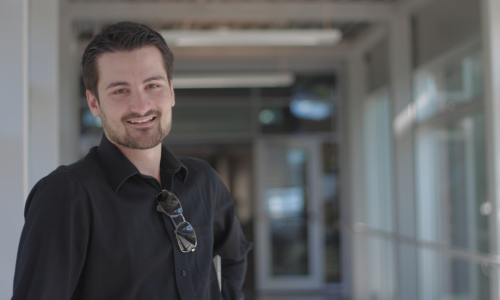
Is a million dollars enough to make you just up and quit your job? Vancouver’s real estate prices would make me ponder this a little, but that’s a whole different story. I’ve asked this question to friends, family and even the lady behind me at the lottery booth. The majority indicated that they would quit their job without hesitation and spend their winnings to take exotic trips around the world, buy a new home, purchase a luxury car, donate to charity, and when the dust settles, pursue their “dream job.”
Some people are lucky enough to know at an early age what they want to be doing in the future. A few may even end up in the career they daydreamed about as a young child. Of course, nothing is ever handed to us on a silver platter. It takes talent, hard work, and a little bit of luck – and as Oprah puts it, “luck is preparation meeting opportunity.”
For some of us, pursuing our dreams might be completely out of our comfort zone. We’re happy to work in jobs we feel are our “best option” at the time. The problem with this is that we become complacent and our motivation and passion slowly start to dwindle.
Don’t we owe it to ourselves to do something that is meaningful and that we love doing?
“Your work is going to fill a large part of your life, and the only way to be truly satisfied is to do what you believe is great work. And the only way to do great work is to love what you do. If you haven’t found it yet, keep looking. Don’t settle. Stay hungry. Stay foolish.” - Steve Jobs
Here are a few tips for finding something you’ll love:
1. Know Thyself
Take some time to do a little soul searching and learn about yourself. What do you value? What matters most to you? What are your gifts? What do you do well that you don’t remember learning? What is your calling?
2. Write Your Dream Job Description
“My dream job is work where I get to use my gifts and talents of ____, ____ and ____ to excel at what I love to do, which is ____, ____ and ____.
I get to fulfill my life calling of ____ and work in inspiring places such as ____, ____, and ____.
Surrounded by the people I love to work with and for, ____, ____, and ____ … I solve the problems, issues or needs I love to work on, such as____, ____ and ____.
My workday is filled with amazing experiences, such as ____, ____, ____ and I get to use my favorite things, like ____, ____, ____ and ____.
I am finally able to afford the life I want, where I can be ____, ____, do ____, ____ and have ____, ____ and ____.”
3. Create a Plan with SMART Goals
Map out what you need to do or the steps you need to take in order to land your dream job. Remember to make them specific, measurable, attainable, results-oriented and time-bound. Here are some questions to get you thinking:
-
Is there a skills gap? Do I need to develop or learn new skills? What kind of training, if any, is required?
-
Who is in my network? Who do I know that is currently working in my field of interest? Could I set up an informational interview with them?
-
What does the job entail? Is there an opportunity to test the waters and do a job shadow or volunteer?
-
What professional associations exist in this field or industry?
-
Are there alternate career paths I can take to get there?
4. Stay Positive and Don’t Give Up!
Like any journey, you will experience some bumps along the road. You may feel frustrated and at some point, even tempted to give up pursuing your dreams because it may seem like it’s just too hard. Keep a positive mindset and don’t be discouraged. They are often more attainable than you would think.
So, what’s your 2012 New Year’s resolution?














